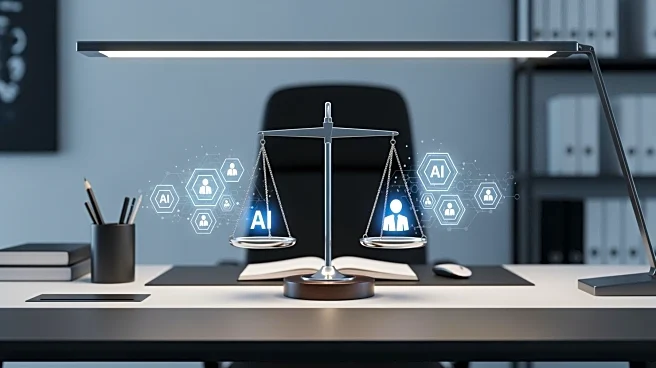What's Happening?
HR executives are increasingly focusing on the strategic integration of technology, particularly artificial intelligence, within corporate environments. While AI has revolutionized automation, it has also
introduced friction that can be challenging to measure and address. This friction, akin to micro-aggressions, can lead to decreased employee satisfaction and productivity if not managed properly. HR leaders are urged to identify and mitigate these hidden sources of dissatisfaction to prevent enterprise-wide consequences. Effective HR strategies require collaboration with IT departments to ensure technology is user-friendly and beneficial across all levels of the organization.
Why It's Important?
The integration of AI in HR processes is crucial for streamlining operations and enhancing efficiency. However, if not implemented thoughtfully, it can lead to increased workload for employees and dissatisfaction, ultimately affecting recruitment, retention, and overall organizational efficiency. HR departments must weigh the benefits and costs of new technologies, ensuring they do not inadvertently create more work for employees. By addressing these issues, HR can leverage technology to reduce friction and improve workplace satisfaction, which is vital for maintaining a competitive edge in the corporate sector.
What's Next?
HR departments are encouraged to establish feedback loops to capture employee dissatisfaction with technology implementations. This involves creating easy avenues for submitting complaints and ensuring quick responses to areas of friction. Additionally, HR must maintain human interaction where necessary, as technology cannot fully replace the nuances of human communication. By partnering with IT and continuously monitoring technology for glitches and inefficiencies, HR can prevent compounding friction and enhance the overall workplace environment.
Beyond the Headlines
The ethical implications of AI in HR highlight the need for maintaining the human element in workplace interactions. As technology advances, HR professionals must balance automation with personal engagement to preserve employee morale and satisfaction. This approach not only addresses immediate concerns but also sets the stage for long-term organizational health and productivity.











